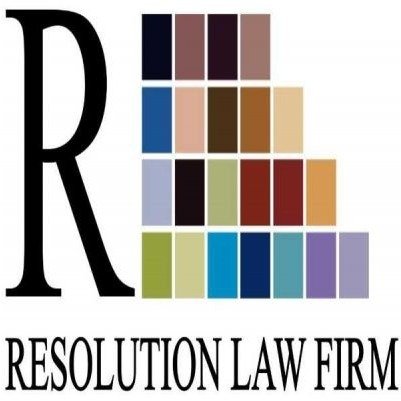Best Tax Increment Financing Lawyers in Nigeria
Share your needs with us, get contacted by law firms.
Free. Takes 2 min.
Or refine your search by selecting a city:
List of the best lawyers in Nigeria
Legal guides written by Adeola Oyinlade & Co:
- Procedure and Requirements for Work Permit and Visas in Nigeria
- The Step-By-Step Procedure of How to Apply for Microfinance Bank License Online in Nigeria
- How to Ensure the Smooth Recognition and Enforcement of Foreign Judgments in Nigeria
About Tax Increment Financing Law in Nigeria
Tax Increment Financing (TIF) is a financing strategy that is gaining attention in Nigeria as a tool for urban development and revitalization projects. It involves leveraging future gains in taxes to finance current improvements that will theoretically create the conditions for those tax gains. In Nigeria, TIF is used to fund public infrastructure projects in underdeveloped areas, prompting economic development. The approach has been praised for its ability to improve infrastructure without directly tapping into government funds or raising taxes immediately.
Why You May Need a Lawyer
Engaging a lawyer who specializes in Tax Increment Financing can be crucial for both government entities and private investors. Here are some common situations where legal assistance may be necessary:
- Preparation and negotiation of development agreements.
- Understanding complex TIF regulations and ensuring compliance with local laws.
- Addressing disputes or challenges related to TIF projects.
- Assisting with the financial structuring of projects to ensure practicality and profitability.
- Securing necessary approvals and permits from government authorities.
Local Laws Overview
The legal framework governing Tax Increment Financing in Nigeria encompasses several key components. Here are some of the significant aspects:
- Regulatory guidelines that outline how and where TIF can be applied.
- Statutory requirements for the establishment of TIF districts.
- Environmental impact assessments and approvals needed before projects can proceed.
- Revenue allocation laws that dictate how tax increments are distributed and used.
- Local government roles and responsibilities in the administration of TIF projects.
Frequently Asked Questions
What is Tax Increment Financing?
Tax Increment Financing is a public financing method that is used as a subsidy for redevelopment, infrastructure, and other community-improvement projects. In Nigeria, it supports the development of public infrastructure by allowing future tax gains to pay for current projects.
Who can initiate a TIF project?
A TIF project can be initiated by government bodies, private developers, or a partnership between both in Nigeria.
Are all areas eligible for TIF?
No, typically areas that are underdeveloped or have been marked for economic redevelopment are prioritized for TIF projects.
How are TIF districts created?
TIF districts are established through a formal process that involves proposals, reviews, and approvals by local government entities.
What legal requirements must be met for TIF approval?
Projects must comply with local development laws, obtain necessary environmental clearances, and often require public consultations and hearings.
Can TIF lead to an increase in taxes?
TIF does not necessarily increase taxes; it earmarks the growth in tax revenue resulting from the development to fund the project's costs.
What are the risks associated with TIF?
Risks include project underperformance, legal disputes, or changes in economic conditions that might affect projected tax revenue increments.
How is the effectiveness of a TIF project measured?
Effectiveness is measured by the economic growth and development that occurs within the TIF district over time, and whether the anticipated tax increments are realized.
Who oversees the implementation of TIF projects?
Local governments usually oversee TIF projects with the aid of relevant public bodies to ensure compliance with legal and developmental standards.
Can TIF be used for private projects?
While TIF is primarily intended for public infrastructure and community improvement, it may indirectly benefit some private projects that contribute to public goals within a TIF district.
Additional Resources
For individuals seeking more information or assistance with Tax Increment Financing in Nigeria, the following resources may be helpful:
- Ministry of Finance - Provides guidelines and updates on financial policies applicable to TIF.
- Federal Ministry of Works and Housing - Offers insights on infrastructure development projects.
- Nigerian Investment Promotion Commission (NIPC) - Can provide resources for investors interested in TIF projects.
- Local government authority websites - For specific information on TIF districts and projects within their jurisdiction.
Next Steps
If you are considering engaging in a Tax Increment Financing project or require legal assistance, here are some steps to follow:
- Research and understand the basic framework of TIF and the specific legal requirements in your local area.
- Identify potential legal experts or firms with experience in TIF law in Nigeria.
- Arrange consultations to discuss your objectives and receive personalized legal advice.
- Work with your legal advisor to draft and negotiate any necessary agreements and ensure compliance with all relevant laws.
- Maintain open communication with your legal team to address any issues that arise during the project's lifecycle.
Lawzana helps you find the best lawyers and law firms in Nigeria through a curated and pre-screened list of qualified legal professionals. Our platform offers rankings and detailed profiles of attorneys and law firms, allowing you to compare based on practice areas, including Tax Increment Financing, experience, and client feedback.
Each profile includes a description of the firm's areas of practice, client reviews, team members and partners, year of establishment, spoken languages, office locations, contact information, social media presence, and any published articles or resources. Most firms on our platform speak English and are experienced in both local and international legal matters.
Get a quote from top-rated law firms in Nigeria — quickly, securely, and without unnecessary hassle.
Disclaimer:
The information provided on this page is for general informational purposes only and does not constitute legal advice. While we strive to ensure the accuracy and relevance of the content, legal information may change over time, and interpretations of the law can vary. You should always consult with a qualified legal professional for advice specific to your situation.
We disclaim all liability for actions taken or not taken based on the content of this page. If you believe any information is incorrect or outdated, please contact us, and we will review and update it where appropriate.
Browse tax increment financing law firms by city in Nigeria
Refine your search by selecting a city.

















